Source: www.hra-news.org
Date: May 29, 2018
Translation by Iran Press Watch

HRANA News Agency – Mechanical engineering student Hannan Horr, a Baha’i citizen, has lost his appeal with the Court of Administrative Justice and is being denied the right to continue his university studies on the basis of his being a Baha’i.
According to HRANA (the Human Rights Activists News Agency of Iran), Hannan Horr successfully competed in in the 2016 university entrance exam, holding rank 3,000 in math, and was admitted to the field of Mechanics at Babol’s Noshirvani University. However, on October 1, 2016, Mr. Horr was prevented from entering a classroom, and subsequently learned that, effective October 3, 2016, he was banned from continuing his studies. He filed an appeal with the Court of Administrative Justice in 2017, seeking to uphold his right to continue his education. However, at the conclusion of the inquiry, Branch 40 of the Court of Administrative Justice ruled his complaint invalid. The Court’s ruling was communicated to Mr. Horr yesterday, May 28, 2018.
According to the judgement issued by the Court, the defense presented by the Ministry of Science, Research and Technology was “based on the regulations approved by the Supreme Cultural Revolution Council (SCRC), which ban the Baha’is from government employment as well as university education.”
The Court’s ruling found that “regarding the plaintiff’s case based on the defendant’s obligation to allow the continuation of studies based on his passing the entrance examination, since the actions taken by the defendant were in accordance with the regulations approved by the The Supreme Cultural Revolution Council, and are not in violation of the law, therefore, the plaintiff’s complaint is not valid, and based on articles 10 and 65 of the law of institutions and judicial code of the Court of Administrative Justice, the case is overruled and rejected.”

This language of this ruling is significant, as it is one of the rare instances in which the Iranian judicial system admits the existence of confidential regulations approved by the Supreme Cultural Revolution Council, which ban Baha’is from government employment and higher education.
It is of note that previously, Mr. Horr’s brother, Faran Horr, as well as their father Elam Horr were also banned from university education due to their religious belief, in 2012 and 1983 respectively.
Each year many reports are published regarding the deprivation of Baha’i citizens from continuing their education in Iran’s universities. Even those Baha’i students who are on the verge of graduation find themselves suddenly banned from continuing their studies.
Another instance regards Shakib Teimoori, a Baha’i and undergraduate student in Mechanics at Gorgan University who, according to HRANA, was expelled from university on the morning of Sunday May 27, 2017. The university is refusing to return Mr. Teimoori’s transcripts.
Despite the clear letter of the law, based on the regulations approved by the Supreme Cultural Revolution Council, Baha’is are banned from government employment as well as university education.
Throughout the existence of the Iranian regime, the United Nations rapporteurs for human rights in Iran have repeatedly denounced the persecution of the Baha’i Community, in particular the denial of the right to education for Baha’i students, considering it a blatant example of the Iranian government’s disregard for human rights treaties.
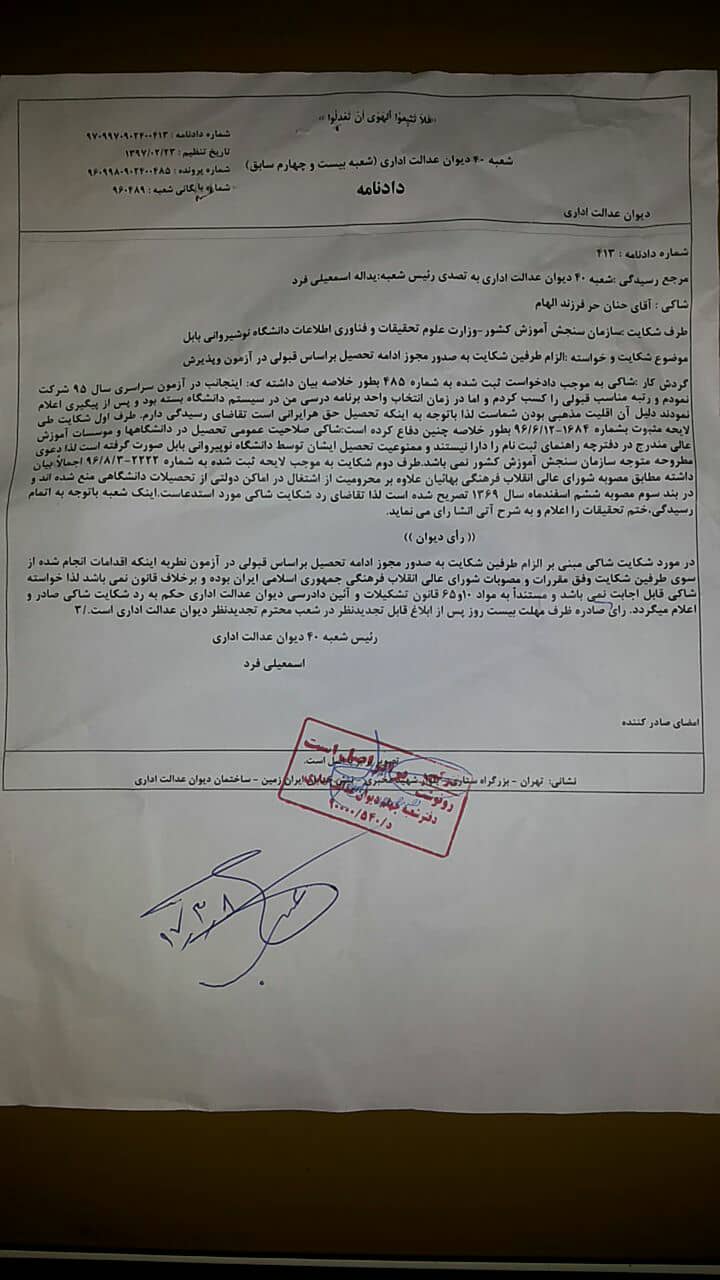
Baha’i citizens in Iran are deprived of freedoms related to religious beliefs. This systematic deprivation is whilst, in accordance with Article 18 of the Universal Declaration of Human Rights, and Article 18 of the International Covenant on Civil and Political Rights (ICCPR) (both of which Iran is signatory), all persons have the right to religious freedom, the right to change their religion or belief, and the freedom to express their belief individually or collectively in public or private.
Baha’is in Iran are prohibited from having any administrative bodies for their community, so an accurate count of the number of Baha’is currently in Iran is difficult to assess. However, based on unofficial sources, there are over 300,000 Baha’is in Iran. Iran’s Constitution only recognizes Islam, Christianity, Judaism and Zoroastrianism, and does not recognize the Baha’i Faith as a religion. This has been used by the Regime to justify systematic denial of rights of the Baha’is over since the Islamic Revolution.
The attached documents are related to the deprivation of the three members of the Horr family of the right to education since 1983.
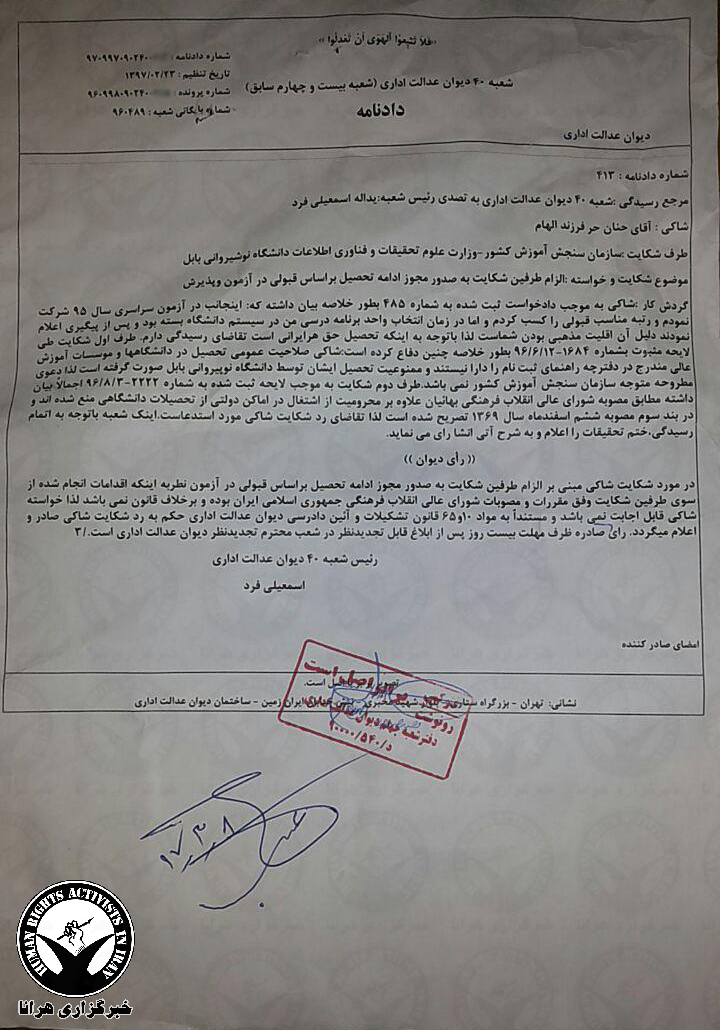
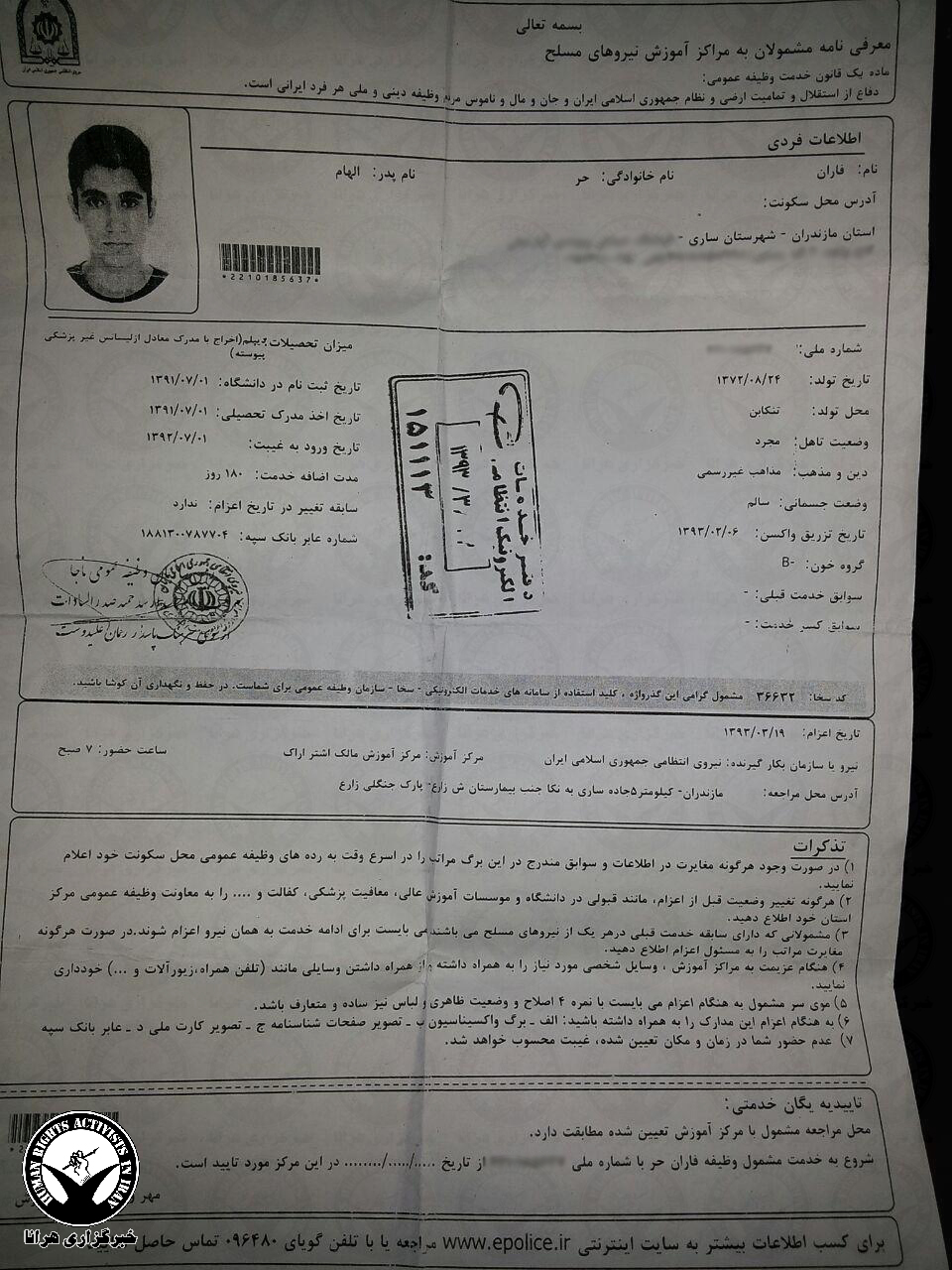
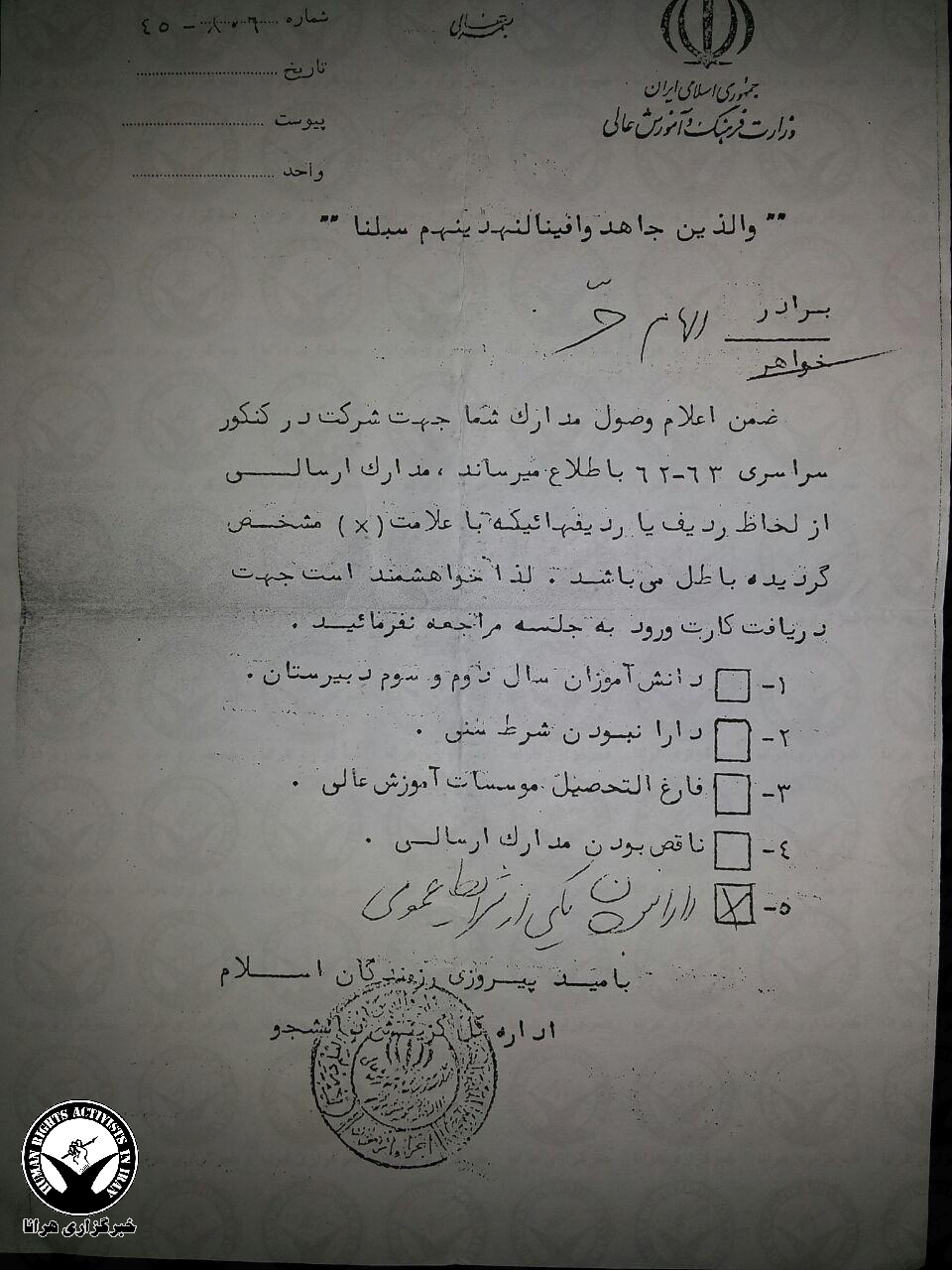
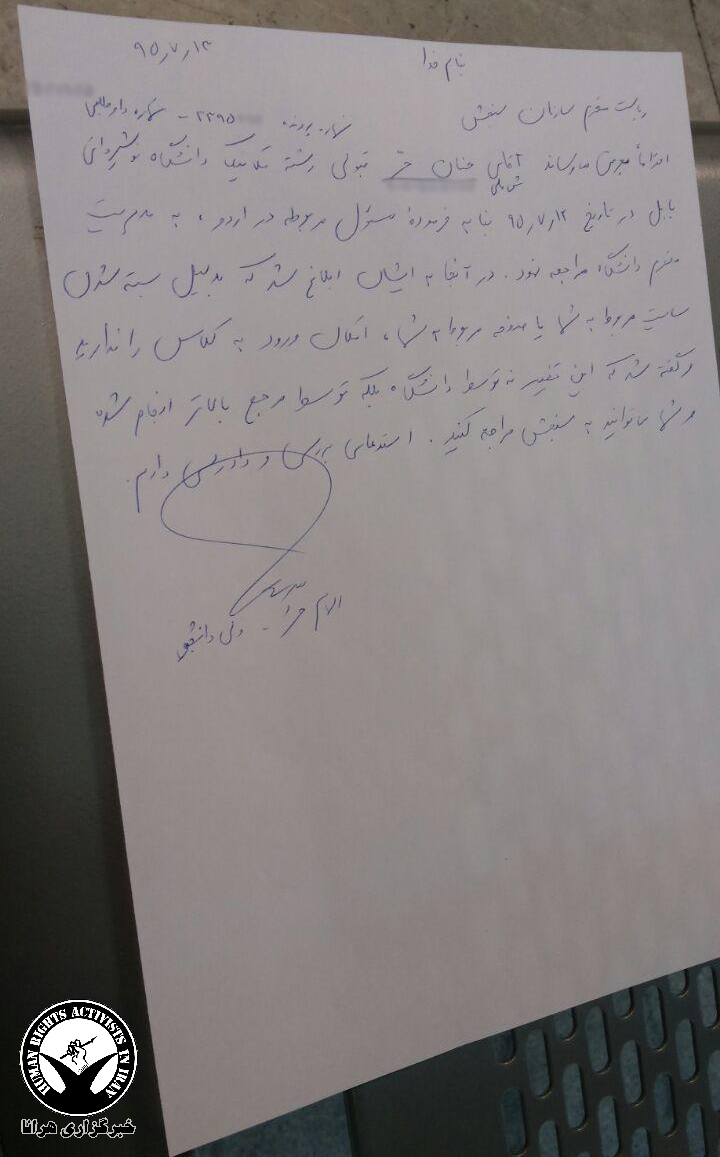
Leave a Reply